Paul Alkazraji's Blog - Posts Tagged "christianity"
Sweet dreams...
 The Last Battle by C.S. Lewis
The Last Battle by C.S. LewisMy rating: 5 of 5 stars
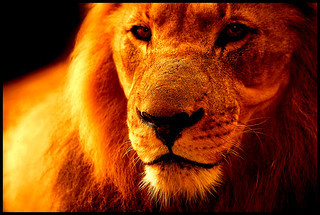
Aslan: sweet dreams...
“I'd been having strange dreams about lions when I began writing the work,” says C.S. Lewis of Aslan, the Christ-like character who appears at the defining hour in this seventh and final novel in The Chronicles of Narnia: a fantasy series for children - and grown-ups.
It is a story of adventure, danger, suspense and hope with insightful parallels to the times in which we live in our world. Early on, Roonwit the Centaur warns King Tirian that strange and evil things are happening to Narnia, and that the stars portend ominous developments. We meet Shift the Ape, who opposes and substitutes himself in Aslan’s place by throwing a lion skin over a stiff-legged donkey, which he controls to dupe the Narnians: a clear parallel to the Antichrist in the Book of Revelation. We see too the folly of those who believe in no god at all who conflate good and evil by calling them one in ‘Tashlan’. “The Calormenes use different words but we all mean the same thing,” says the lying Ape.
We follow characters who face up to the reality that if Aslan were not the one they have believed in and longed for, it would be ‘as if the sun rose one day and were a black sun, or as if you drank water and it were dry’. We come upon a band of dwarfs whose faith in Aslan has been so undermined that they now live only for their own interests. They have become ‘so afraid of being taken in that they cannot be taken out’.
Then during the ‘last battle’ of the book’s title, fought before the door of a stable, we see the deep confusion present, and the faithful remnant hopelessly outnumbered. In such ‘last days’ that we live in, days of intensifying persecutions, rising emergencies and disasters, and where a person can ‘be howled down for saying that two and two make four’, just as the Narnians are when they question the Ape’s lies, there is much reality to rue in this fantasy fiction.
There is too the most vivid of scenes where all living creatures are called across the land to look straight into Aslan’s face. For some, their expressions change to fear and hatred before turning to Aslan’s left to disappear into his shadow. Others look on the face of Aslan and love him, and come in at the Door to his country.
Lewis’ use of certain language, considered mild in its day, has caused some critics to inflame themselves in their zeitgeist zeal to label him a racist, finding a nick and trying to drive a wedge in it. The notion of a true God above false ones and cultures who worship at their altars is an idea here that for some too is an offence beyond tolerance. There are warnings for all of us in Aslan’s shadow. Any dislike of the notion of it does not remove it from the Narnians.
In scenes to cherish, though, Aslan’s country is portrayed as richer in colour and more like the real thing than the Narnia they have always known. There, a great reunion of heroes and long-lost loved ones awaits. It is a place where the children who came to Narnia’s aid sprint further up and further in. ‘For them it was only the beginning of the real story… Chapter One of the Great Story which no one on earth has read’.
In Acts 2.17 it says: 'In the last days, God says… your old men will dream dreams.’ Not so strange, then, that it should be so for Lewis.
By this reviewer:

View all my reviews
Published on November 28, 2019 09:41
•
Tags:
aslan, c-s-lewis, christianity, narnia, the-chronicles-of-narnia
A daughter of The Gardener
![kahitchins700g[1]-002](https://i.gr-assets.com/images/S/compressed.photo.goodreads.com/hostedimages/1552571608i/27205802.jpg)
Paul Alkazraji talks to novelist K A Hitchins about loss, identity and stories of redemption.

Tell us a little about yourself.
I live in Hertfordshire with my husband and two teenage children. I started writing in 2012 after two difficult experiences: the death of my father and giving up work to become a carer for a disabled member of my family. Although I was a Christian and knew that life wasn’t going to be all sunshine and roses, I struggled with the hand I’d been dealt. I became conscious of the most tremendous mental and emotional pressure. My job seemed to be about supporting everyone else while my overriding emotional experience was one of loss. I started to jot down my feelings at odd moments in the day, projecting my unhappiness on a fictional character in order to gain some perspective on my situation. After a couple of months of writing in secret, I discovered I’d finished my first novel, The Girl at the End of the Road.
The book was published in March 2016 by Instant Apostle, who also released my second novel in October 2016. The Key of All Unknown is the story of a woman who appears to be in a coma, but in reality is desperately trying to communicate with the outside world and discover who tried to kill her. My third novel, The Gardener’s Daughter, was published in March 2018.
As well as writing fiction, I speak to groups and creative writing classes, encourage other authors in their book promotion, act as Secretary and Trustee of a small charity training Christians in Togo in children’s ministry, and now also work 21 hours a week as a church administrator.
Tell us a little about your latest book.
The Gardener’s Daughter is about a girl who loses her father and runs away in search of her biological identity. As already mentioned, I had lost my own father a few years earlier and had struggled with a sense of losing my own identity. In many ways, the themes of the book resonated with my emotional life although the actual story couldn’t be further from the happy family life I experienced as a young adult. In The Gardener’s Daughter, my motherless nineteen-year-old heroine, Ava, accidentally discovers she’s adopted and in a fit of anger, runs away in search of her real father. What she discovers changes her life and her perception of herself forever.
Fiction writers put characters in dramatic situations ultimately to ‘say’ something. What are you saying in your latest work?
At the time of writing The Gardener’s Daughter I was volunteering in a Christian Union at a secondary school. I was struck by how difficult it is to explain the Gospel in a short space of time to youngsters who have very little Biblical knowledge. Whatever question they asked, the answer often needed to incorporate a potted overview of the Bible from creation, fall, incarnation, sacrifice, repentance, salvation and eternal life. All the best questions seemed to happen in the last few minutes of the sessions, and by the time a week had gone by the opportunity to continue the discussion had passed.
I decided to write a book which, on the surface would be a pacey thriller, but would in many ways be a biblical allegory explaining the grand sweep of the salvation narrative. In particular, I wanted to focus on our perennial search for identity, which is only truly found in relation to the Father heart of God. The book can be read at different levels. It’s an allegorical story and raises issues about the meaning and purpose of life, but on the other hand it’s a work of commercial fiction that can be read as a coming-of-age thriller.
Share with us a couple of sentences of your choice from your latest book.
Here’s a brief extract from chapter 1, where my heroine Ava remembers listening to her father digging in the garden.
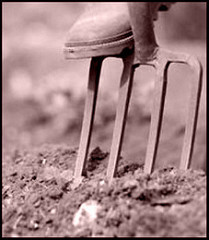 If I close my eyes I can still hear his spade cutting the soil with the rhythmic ticking of a clock, smell the damp peatiness of the earth. Then the quick rasping stabs of his fork as he turns the clods, worms recoiling at the invasion, until the soft, crumbling earth is ready for planting. The sound reminds me that some things have to be turned over and broken down before they are of any use.
If I close my eyes I can still hear his spade cutting the soil with the rhythmic ticking of a clock, smell the damp peatiness of the earth. Then the quick rasping stabs of his fork as he turns the clods, worms recoiling at the invasion, until the soft, crumbling earth is ready for planting. The sound reminds me that some things have to be turned over and broken down before they are of any use. I remember my last hours of ignorance as though they were yesterday. Not a blissful ignorance, because I thought I knew it all back then and was easily irritated by others. But at least I knew who I was and understood my place in the world. The thing with ignorance is you don’t know what you don’t know. I didn’t understand that knowledge can instantly change a life for good or evil. If I had, I might have reined in my impetuous nature. I know now that discovering the truth can open doors that slam shut behind you, doors through which you can never return. For me, the truth brought immediate, irredeemable pain. Discovering a bleeding hole where your heart should be will do that to you.
How does your faith influence your writing?
Although not overly Christian, all my books contain a story of redemption of some kind or another. I believe in a God who is a redeeming God – not only in the way He sent His son to take the punishment for our sins so that we can be forgiven and restored - but in the way He draws good out of the most difficult and painful situations. I’m not working towards a simplistic happy-ever-after in my stories. What I like to consider are those places we’ve all been in at times when we think we’ve lost everything and the only thing we are able to change is our perspective. We live in a culture that values success, status and possessions above all things, a world where the drive for personal fulfilment and individual self-expression can sometimes end up imprisoning us in a cycle of disappointment and despair. I hope to provoke my readers into rethinking some of the assumptions and philosophies that underpin their lives.
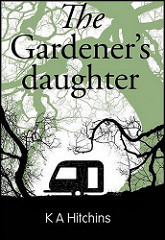
LINKS
www.kahitchins.co.uk
Twitter @KathrynHitchins
K A Hitchins, Author page
https://www.facebook.com/KathrynHitch...
By Paul Alkazraji:

Published on November 06, 2020 02:20
•
Tags:
christianity, fiction-writing, identity, k-a-hitchins, loss, redemption
'Heart of a Hooligan': Dave Jeal's story

Paul Alkazraji and Dave Jeal. Bristol, UK, Summer 2013.
Here is one of the original newspaper reports that led to the writing of the book.
From Hooligan to Holiness.
For Dave Jeal football violence had become a way of life. He talks to PAUL ALKAZRAJI about how becoming a Christian has given him a whole new set of goals.
Dave Jeal's appearance is a touch deceptive. He sports exactly the kind of haircut you would expect of someone who was, until recently, involved in the disturbing world of football violence. It comes as a revealing surprise, then, to find he had his head shorn only recently whilst working with Ark Christian Ministries amongst homeless people in South Africa.
Throughout the mid-Eighties and early Nineties Dave Jeal wore a neatly cut bob and was a 'casual', a 'boy', a member of a Bristol Rovers 'firm' know as the Young Executives. In layperson's English he was at the centre of gang fighting both at league matches and as an England Supporter during the 1990 World Cup.
"I first started going to football in 1972 when I was seven years old," he told me. "I left school at 15 and got in with a dodgy group of lads, and it just got out of hand really. It started off with us coining the away fans and things like that, then it got a bit more involved. We would get to the matches early to see where they parked their cars, and then leave early to go and wait for them. It was mindless violence."
"If Rovers were playing a Welsh club, we'd get to their town centres early, take as many liberties as we could, and try and find out where their firms' pubs were. The object was to take ground. There would be a lot of shouting, one or two punches might be thrown, and then one lot would run. It was a scary game. I've had bleach sprayed in my eyes and I lost my eye socket I've got a plastic one now. I've also got a false tooth and a broken nose. I wasn't very good at it."
Dave also travelled with rival Bristol City fans to England away matches. "During the 1990 World Cup Semi-Final we went in the German end of the stadium with the intention of unfurling our Union Jacks over the German flags, but we got marched out at gunpoint by the Italian police. On the way back to Naples they made us get off at a station where all the German fans were: 400 of them and about 30 of us. We ran into the Germans and this guy fired a flare pistol straight at me. It was bizarre. It can only have been God: it just went up and over my head."
Dave explained to me that the reality of evil impressed itself powerfully upon him during an incident in Stockholm, and it proved to be a turning point in his life. "In 1992 I went to Sweden for the European Championships. England got knocked out by Sweden and there was a full-scale riot outside the ground. I climbed a fence with another guy and got involved in a scuffle with some Swedish fans, and I started kicking one. I ran off up the road, and when I came back about 15 minutes later there were still six or seven lads kicking him on the ground. He was unconscious and he wasn't moving. It just sickened me.”
"I walked back to the stadium where we were sleeping, and I sensed this deeply evil presence all over Stockholm. It think it was because of the wickedness I had seen and had a hand in. My mum was a member of the Salvation Army and I phoned her up and asked her to pray for me. I was petrified."
Early the next day Dave began making his way towards the airport. "I was walking through a subway and there was no one else around," he told me. "Out of nowhere this Salvation Army guy came up the other way and stopped and looked at me. He smiled and nodded. He didn't say anything. It was bizarre. When I got back home I decided I would make a new start but I didn't."
Two and a half years ago, whilst volunteering at a project for Bristol's homeless run by his mother, Dave told me that he "took a shine" to a fellow helper, who invited him to her church. "I went to a service and I hated it. About 10 minutes before the end I just burst into tears. It freaked me, so I ran out to the pub and got pretty hammered. She invited me back, so I went to prove to myself it wouldn't happen again. It did, only this time I was locked in the middle of a row and 1 couldn't get out.”
"These two guys asked me if they could pray for me. I said, 'You can do what you want!' They said, 'Well, what do you want?' Then it hit me. I said 'I want all the anger and hate and pain inside me to go.' They said, 'Do you accept Jesus Christ' I said, 'All right,' and the next thing I knew I was laid out in the middle of all these chairs. I got up and I felt like this massive rucksack I had been carrying around my whole life had just been lifted off me."
Dave subsequently joined the congregation of Wood lands Road Church in Bristol. "It hasn't been easy for them or for me, because I like to call a spade a spade," he says. "I had this thing that I'm working class and I wouldn't be accepted, because most churches are middle class, but my church has been brilliant. They have given me so much support."
For the last two years Dave has helped run their youth group, and is in the process of starting up a half-way house for ex-prisoners and drug users emerging from rehabilitation, with the backing of his church. He has a warmth and gentleness which belies his history and are a testament to God's work.
I asked him how his mum had reacted to the news. "She had just got back from her holiday. I had been trying to phone her all afternoon, and I said, 'Mum I've got something to tell you.' It went really quiet. I said, 'I've become a Christian,' and she just screamed and she was crying."
Dave still attends Bristol Rovers matches, though no longer for the dark exhilaration of 'firm' membership. He still maintains old friendships, however, so I asked him how his new allegiance went down on the terraces. "They think it's hilarious," he told me with a grin.
"I went on Sunday with my girlfriend and some people from church. They were saying, 'Is this part of your new firm then?' I said 'Yes its God's firm!”
"The referee made a dodgy decision, and I was dying to shout abuse at him. They noticed and said, 'You wanted to swear then, didn't you' I said, 'Yes? They think that's brilliant, and that I'm still one of the lads. I am and I'm not, if you know what I mean."
Originally printed in the 12th June 1998 issue of the UK’s Catholic Herald.
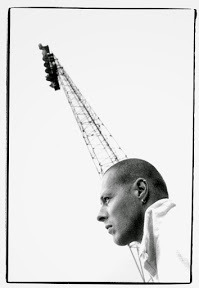
Dave Jeal, 1998.
By Paul Alkazraji.

Published on February 25, 2021 08:46
•
Tags:
bristol-rovers, christianity, church, dave-jeal, england, european-championships, football, hooliganism, jesus, juventus-fc, millwall-fc, paul-gascoigne, soccer, stockholm, turin, united-kingdom, violence, world-cup
The Soldier and The Monk’s Tale

A wounded soldier of fortune journeys through medieval Wales towards a new beginning in ‘The Healing’. Author Joy Margetts talks to Paul Alkazraji about her new novel.

Tell us a little about your novel ‘The Healing’.
The Healing is part historical fiction and part spiritual journey. It is set in medieval Wales against the backdrop of Cistercian life, and is the story of how one man finds healing, of mind, body and soul. Philip de Braose is a man wounded by life. He finds an unusual friend and companion in a kind-hearted Cistercian monk, Brother Hywel, and together they journey back from France to his homeland in Wales. During that journey, and in his time immersed in Cistercian life, God draws Him back to Himself and gives him the grace to be able to confront and deal with his hurts and failures. Particularly through Hywel’s kind words and gentle ways, God does a redeeming work in Philip’s life and he emerges a changed man. He is ultimately able to return to his own world and become the man that God always intended him to be.
Is there an aspect of it you are particularly pleased with?
That is a hard question! I am pleased with it as a whole. I think it is a story with a gripping beginning, that moves seamlessly and engagingly to a satisfying end. But it is more than a well told tale, it is a story of healing and redemption that mirrors my own experience. As that, it is a genuine portrayal of what God can do to heal and restore any one of us. It is truthful and truth- filled, and I believe carries hope.
Share with us a sentence of your choice from the book,
‘We willed you to choose life, and you did. Now, Philip, I am urging you to choose hope. You can let the despair take you, or you can choose another way.’
Tell us about something you like or dislike in one of your characters.
I love Brother Hywel’s sense of humour and ready smile. He is kind and wise but not pious in any way. He is just a very good man… in fact one of the most Christ-like people I have ever met! And yet very relatable and human.
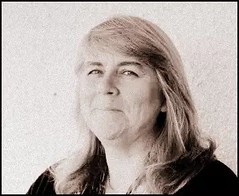
Tell us a little about yourself.
I am a fifty-something mother of two grown children, eagerly expecting my first grandchild in the spring. My husband and I live, together with a feisty Jack Russell, on the beautiful North Wales Coast, with stunning views from our home of sea and mountains. In a previous existence I was a nurse/midwife but left that to pursue other things. Local church is very important to me, and I have the privilege of being able to regularly teach the Word of God, and run our very own in house Bible Academy. I have always loved writing, but never in my wildest dreams have I ever believed that I would have a novel that I had written published.
How does your faith influence your writing?
This book really wouldn’t be here if it weren’t for my relationship with God. As I said, the message of the book is taken directly from the things I had to learn, and re-learn during a really difficult time in my life, when my health unexpectedly failed. God was so kind and gracious to me in surrounding me with friends who were like Brother Hywel to me. They prayed when I could not, spoke the truth with love, and showed me how much God cared about what I was going through, when I couldn’t hear His voice for myself. God has restored me as He did Philip, and is continuing His healing work in me. I believe The Healing is part of my redemption. I lost many things due to my illness, but bit by bit God has given back far more than was stolen from me. This book is God’s gift to me, and I have given it back to Him. I pray that it will be a gift, from God, to many others too.
Tell us about something you’ve read recently that moved you.
The Treasure Man by Joy Vee is a children’s book but with a profound message. I read it to review it but it spoke so deeply to me! It deals with two really powerful truths that the children in the story have grasped so readily: that we are really precious to God, and that we can hear His voice easily for ourselves. It moved me because as adults we can sometimes find it hard to accept those simplest of truths. We make our faith so complicated at times when God calls us to have a simple childlike faith.
What are you most thankful for in life?
Love. God’s unfathomable love for me. The constancy of the love of my (longsuffering) family and friends. The privilege of being able to share God’s love with others.
What makes you laugh?
The dog – when he is not winding me up!
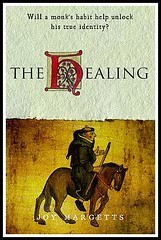
The Healing will be published by Instant Apostle on 19th March.
You can order a signed copy direct from the author at www.joymargetts.com where you will also find out more about the book, and how it came to be written, as well as some historical background.
By the interviewer:

Published on March 11, 2021 09:30
•
Tags:
christian-fiction, christianity, cistercian, france, healing, historical-fiction, medieval, monasticism, wales



